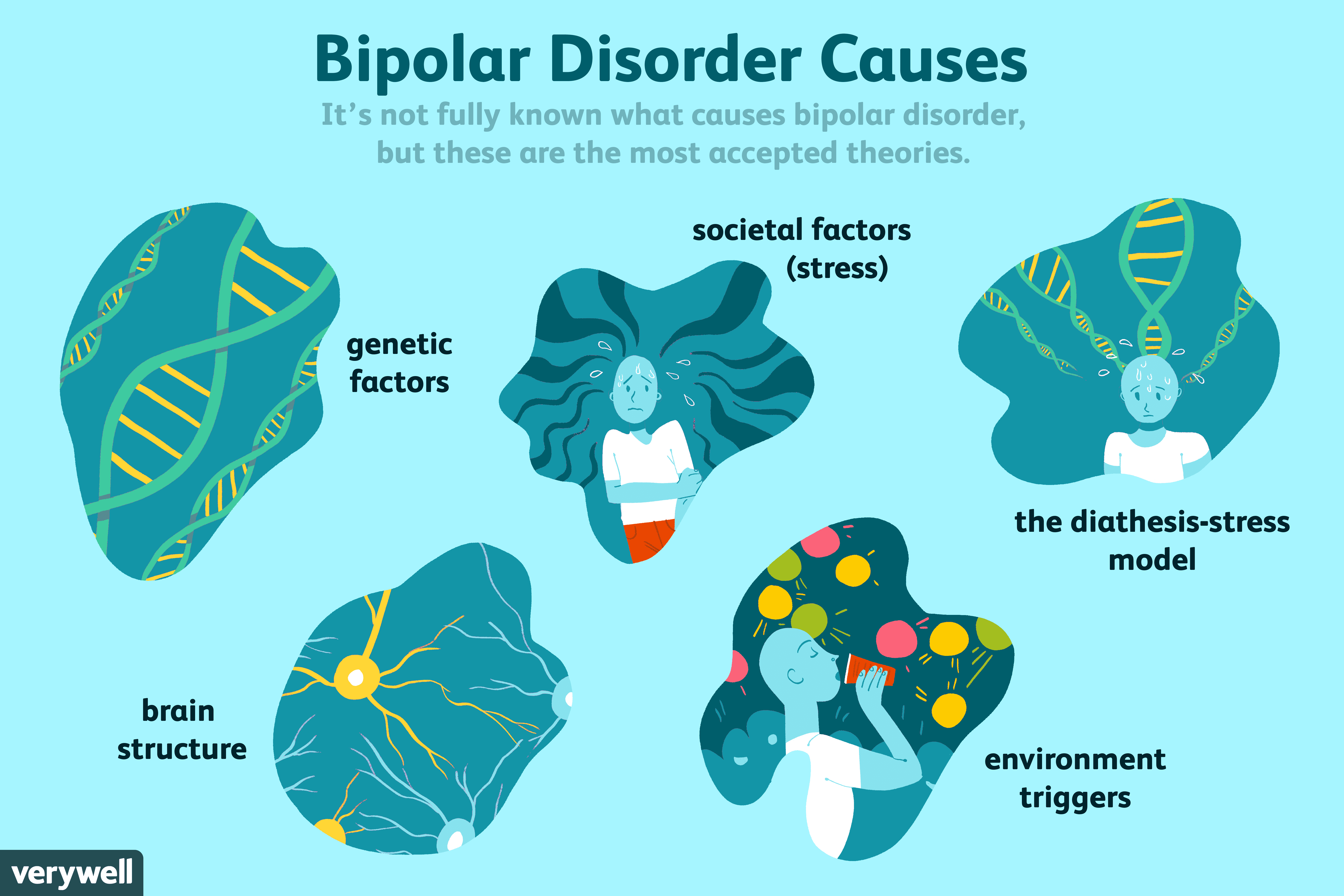- Decreased need for sleep with little apparent fatigue
- Sudden increase in goal-oriented activities(such as a project that needs to be done to the exclusion of other activities)
- Persistent and often purposeless movement
- Restlessness and an inability to remain still
- Rapid thoughts
- Increased talking, lack of connection between thoughts/ jumping from one topic to another
- Increased energy
- Intrusive thoughts
- Reckless behaviour such as gambling or spending money recklessly.
- Elevated cheerful mood
- Extreme excitability
- Sudden shifts to extreme irritability, hostility, or even anger
- Inappropriate humour and brash behaviour
- Hypersexuality and sexually provocative behaviours
- Reckless and extravagant spending (including the lavishing of gifts on friends, casual acquaintances, and even strangers)
- An increased focus on religious activity
Bipolar Disorder
Offering Several different Medications & Consultations with our Expert Psychiatrist that work best for your relief.

